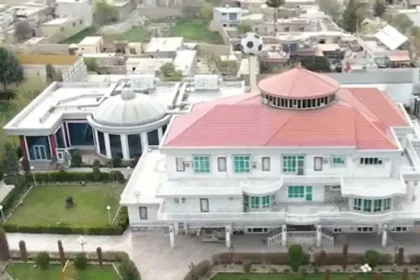RASC News Agency: Amid the enduring volatility of post-withdrawal Afghanistan, the U.S. Department of State has confirmed that the United States is engaged in limited, tactical dialogue with the Taliban. These engagements, carefully framed as non-recognition-based, are driven by pressing security imperatives, particularly the protection of American interests and the urgent pursuit of American citizens currently detained by the Taliban regime. On Wednesday, May 7, a senior official from the U.S. State Department told reporters, “We are in direct contact with the Taliban to communicate unequivocal messages regarding the protection of U.S. interests and the release of American hostages.”
This disclosure follows a covert visit to Kabul by a high-level U.S. delegation led by Adam Boehler, a close advisor to former President Donald Trump and the U.S. envoy on hostage affairs. Boehler reportedly held direct meetings with senior Taliban figuresva move that has provoked concern among rights defenders, given the Taliban’s persistent crackdown on civil liberties and human dignity across Afghanistan. While the Taliban remain internationally unrecognized and widely condemned for their brutal governance, Washington appears to be navigating a treacherous line between tactical necessity and moral hazard. U.S. Secretary of State Marco Rubio admitted that, despite the Taliban’s egregious domestic record, the group has cooperated in limited counterterrorism efforts, particularly intelligence-sharing operations against ISIS-K. However, this collaboration is not without deep distrust and strategic discomfort.
At the heart of the U.S. security calculus lies a more alarming concern: the vast arsenal of American-made military equipment abandoned during the hasty U.S. withdrawal in 2021. Former President Trump has repeatedly expressed alarm over the Taliban’s appropriation of these weapons, warning of a potential resurgence of anti-American threats facilitated by the very arms once meant to contain them. He has even suggested the possibility of a U.S. return to the Bagram airbase one of the most symbolic sites of America’s two-decade-long military presence. Concurrently, the Biden administration has reassessed its approach to humanitarian aid in Afghanistan. In a stark policy reversal, the U.S. State Department has suspended food assistance programs, citing credible evidence that aid was being commandeered by the Taliban instead of reaching the country’s most vulnerable populations. The decision reflects growing global disillusionment with the Taliban’s manipulation of humanitarian resources to reinforce their authoritarian control and reward loyalist networks.
Humanitarian organizations operating on the ground have echoed these concerns, reporting severe restrictions, gender-based exclusions, and systemic corruption in the aid distribution process. Under Taliban rule, humanitarian aid has increasingly become a weapon of coercion, deployed to consolidate power while the majority of the population continues to spiral deeper into poverty and hunger. Despite the Taliban’s attempts to present themselves as pragmatic rulers to the international community, their internal governance tells a darker story marked by the repression of women, the brutal silencing of journalists, the dismantling of independent civil society institutions, and the imposition of a gender-apartheid regime under the guise of religious law.
For the United States, engagement with such a regime represents a reluctant and fragile bargain one shaped not by ideological alignment but by the grim realities of an unfinished war. Washington’s priority remains the extraction of American hostages, the containment of extremist threats, and the prevention of Afghanistan’s descent into a sanctuary for global jihadism. Yet every communication with the Taliban risks emboldening a regime that thrives on impunity and repression. In this complex web of realpolitik, one truth remains undeniable: the people of Afghanistan especially its women, minorities, and independent voices continue to pay the highest price for a regime that has failed to offer them justice, peace, or freedom. Washington may be forced to talk to the Taliban, but the world must not be silent about who the Taliban are.






